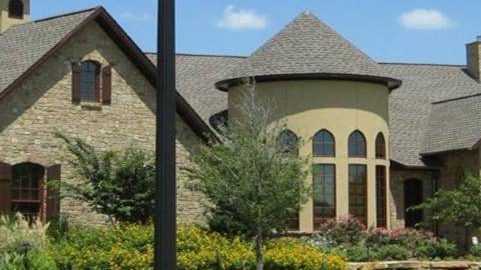Lightning may seem like a completely random act of God that is either going to strike you dead or spare you, but fortunately, you have a lot more control over the situation than you think. By following some simple advice on how to protect your home, you can spare yourself from joining the thousands of houses that are damaged by lightning storms every year in the United States. Extremely expensive damage in the form of blown off shingles, fried electronic apparatuses, and burnt rake boards, corner boards and window trimmings can wrack up quite a bill when it’s time for repairs. An efficient lightning protection system can avoid such a snafu entirely. But keep reading, because the answer to how to best protect yourself is not as simple as you may think.
Lightning poles are a common sight on top of many American homes today, and have been for the past century. Conventional wisdom holds that the poles attract the lightning by virtue of being the highest relative point, and that the lightning goes from the pole to the ground without damaging the house or anything else valuable along the way. Things are not quite that simple, though. The pole in fact neither attracts nor repels lightning, but rather channels it if lightning happens to strike it. Therefore, on the off chance that your pole happens to be the target of the lightning, then your home is safe. Otherwise, having it there is more for your own peace of mind than for any real protection. Not to fret, though; an equally convenient but far more secure system for lightning protection exists and can be installed by most home repair companies.
An efficient lightning protection system is like a network of roads that safely direct lightning to the ground, regardless of its initial orientation. A combination of copper and aluminum rods, cables, and connectors make sure that the lightning avoids not only your power lines, but your neighbor’s as well. And along that line of thinking, it is best to get arrestors on all of your incoming lines in case the neighbors themselves are struck without a protection system, and you’re exposed to the risk they chose to take. An uninterrupted circuitry to several grounding points is the ideal model of lightning protection systems, and high standards of quality exist to ensure that any system you purchase has been certified and approved. If you take the chance of buying one without certification, you might be no better off than if you pulled a Ben Franklin and stuck a kite up in a storm.
